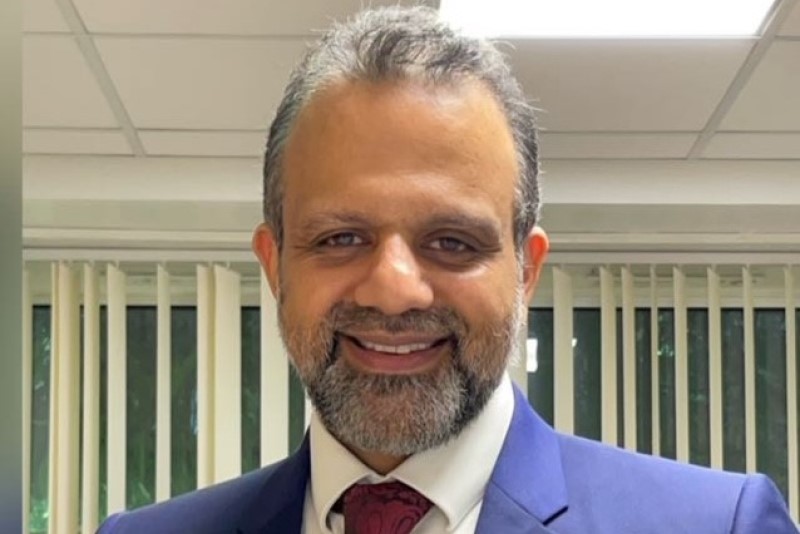Knee cartilage damage study
Date of release: 5 February 2025
People with knee cartilage damage are being sought by a Consultant who is leading a research study to try to improve patient care.

Mr Ejaz Mughal, Consultant Trauma, Sports Knee and Orthopaedic Surgeon
Mr Ejaz Mughal, Consultant Trauma, Sports Knee and Orthopaedic Surgeon at The Royal Wolverhampton NHS Trust, is Principal Investigator on the study - The Meniscal Transplant surgery or Optimised Rehabilitation - Full Randomised Trial (MeTeOR2).
The study will compare two treatments for patients who undergo a total meniscectomy. One group of patients will have a course of personalised knee therapy and the other group will have a meniscal transplant.
The meniscus is an important structure within the knee. One of its key roles is to cushion impact and protect the gliding surface of the joint from wear.
Patients who have damaged their meniscus, and had a removal of the meniscus, are more likely to develop persistent pain after this, resulting in years of disability.
Mr Mughal said: “It is very exciting to be part of this important national trial as knee cartilage damage is a painful condition. This is evidence of the department’s ability to provide such a high level of excellence in surgical therapies for the Black Country and wider region.”
Lawrence Phiri, Research Nurse, said: “At present, there are several treatment options ranging from knee therapy (physiotherapy) to a replacement meniscus also known as a 'meniscal transplant'.
“Meniscal transplant is thought to provide cushioning to the joint surfaces and improve symptoms but it has a long recovery period and the operation carries risk of surgery as well as not helping with symptoms.
“At present, there is no direct evidence that meniscal transplant is better or worse, than a specific targeted rehabilitation and therapy program.
“In this study, we will compare two treatments for patients with a total meniscectomy. One group of patients will have a course of personalised knee therapy and the other group will have a meniscal transplant.”
Professor Matthew Brookes, Director of the West Midlands Regional Research Delivery Network, added: "This NIHR-funded study offers the possibility of reducing the recovery for patients, and will evaluate potential costs saving for the NHS."
The study leads are hoping to recruit 144 participants from 12 NHS Trusts and three international sites.
It will run for 24 months.
To sign up, contact Lawrence Phiri, Research Nurse, on 01902 307999 ext 88565.
ENDS
- For further information, please email amy.downward@nhs.net

